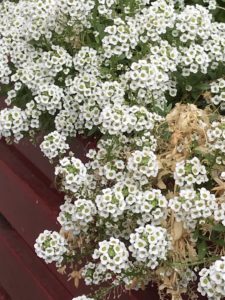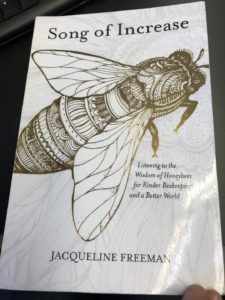La Lectura
This week, we played a game called Pasapalabras. Pasapalabras is a game where you go in alphabetical order with words. The computer gives you a clue as to what the word could be, and you write down your guess. After a few letters, you turn the computer back and reveal the answer. The class had fun playing with it. – Sophie Jacobs
Hello families! This is what the students from the ⅚ class of SWS did this week. They read a folktale from Argentina called ¨The cricket and the jaguar¨. They talked amongst themselves about the text comprehension clues including: purpose, genre and more. Also, they wrote about their summer vacations and shared with the class. – Rafa Lavagnino
- Acquire and accurately use words and phrases for general or specific academic use of a discipline, suitable for the sixth grade. They expand their knowledge of vocabulary by recognizing the importance of a word or phrase for comprehension or expression.
- Use the combined knowledge of all the correlations between phonemes and graphemes, patterns of division into syllables, paying attention to the accent written according to the morphology (example: roots and affixes), to accurately read unknown multisyllabic words, in context and out of context.
- Define the main theme or idea of a text and how it is transmitted through certain details. Summary the text without giving opinions or personal judgments.
- Understand the key characteristics of folk tales.
- Analyze in detail how a character, event or key idea in a text is presented, described and developed through examples or anecdotes. Make cross-curricular connections (social studies and science).
- Apply their knowledge acquired during literary circle. Create rubrics proposals for possible book clubs during the year. Argument and justify their proposal to the class.
Ciencias
Throughout this Unit, students will expand their understanding of ecosystem dynamics and study how organisms interact with each other and other non-living parts of the ecosystem. Students will study the anchoring phenomenon of Colony Collapse Disorder and will explore the relationship between bees and their ecosystem. After each lesson, students will connect their findings to the problem faced by the bees and come up with a solution.
The bees! Maybe you don’t know much about them. This week the 5th and the 6th grade class had lots of debates on how we should save the bees, which are very important on this planet. In fact the bees are so important that, if the bees died of of this planet, then, the whole ecosystem would fail without the world’s most important pollinators. The bees are responsible for a third of our food, which is like every third bite of food you eat. We spoke about why the bees are important and lots of possible solutions that could help them. Help save the bees! – Juliette Murrow
 Engage and explore bee colony collapse using videos and articles.
Engage and explore bee colony collapse using videos and articles.
• Research colony collapse disorder.
• Brainstorm ways that humans can preserve the honey bees.
• Reflect on the concept of wholeness, unity and teamwork: how bees see themselves, their colony and the world, and what lessons can we, humans, learn from them.
• Create a quick sketch of the relationship between honey bees and
humans.
• Brainstorm possible ideas for bee protecting campaigns.
• Choose one solution to focus on and develop throughout the Unit.

“Song of Increase opens up a mystical realm of deep communication with nature. Learn the wisdom of the bees, and you will never look at the world the same way again.” – Starhawk
Mathematics
Our objectives this week were:
- Express a whole number as a product of its prime factors
- represent whole numbers, fractions, and decimals on a number line
- interpret and write statements of inequality for two given positive numbers using the symbols < and >
History & Geography
Our objectives this week were:
- Understand that the Sahara supports plants and animals that have adapted to extremely hot and arid conditions
- recognize that the Kalahari is known for its rich variety of plants and wildlife
- explain the ways the San have adapted to living in the desert
- understand that she shared features of all deserts is aridity
- describe the difference between a hot and cold desert
English Writing & Spelling
Our objectives for writing were:
- finish our ¨writing ideas¨ section in our journal
- understand and find the subject and predicate within a complete sentence
Our Greek and Latin roots this week were:
- aqua/hydr: water
- arch: ruler
Our first Greek and Latin Roots quiz is on Monday September 17th!
